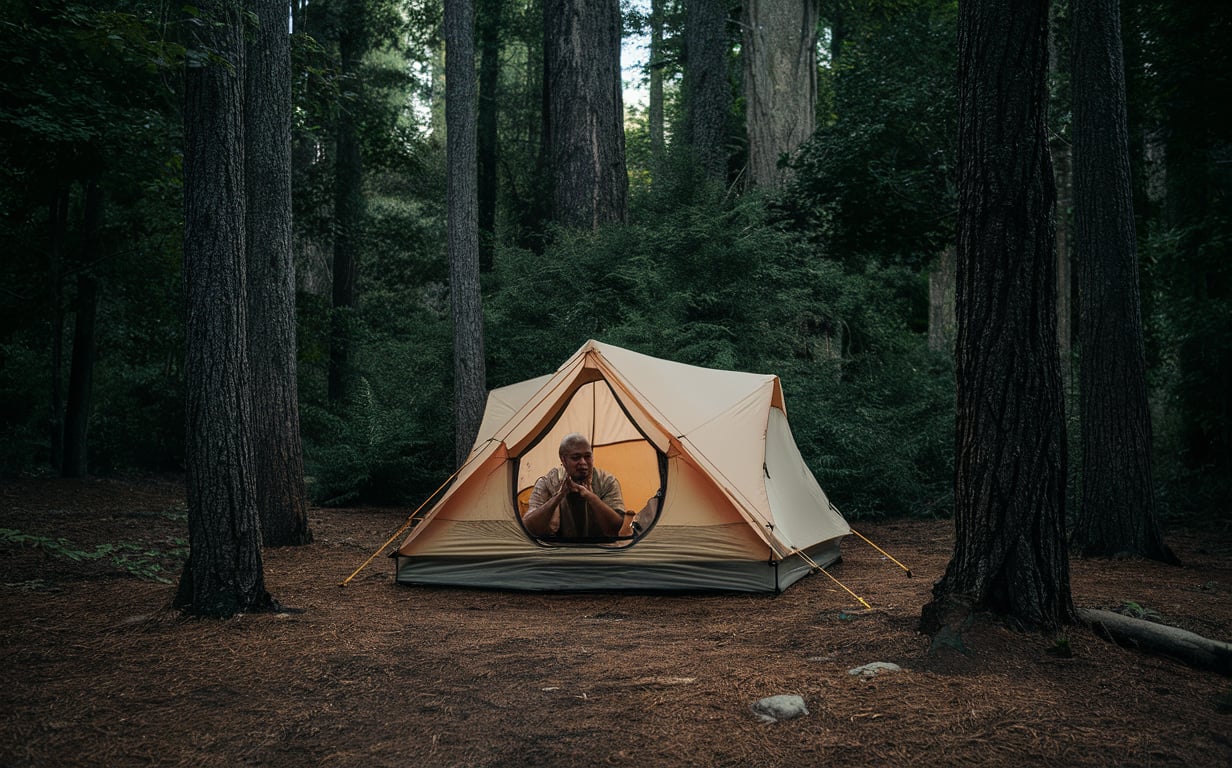From Tent to Trailblazer: Minimizing Your Impact While Maximizing Your Camping Fun
Responsible Camping: A Quick Introduction
Camping is one of the best ways to connect with nature, but it comes with responsibilities. Minimizing our impact on natural environments is essential to preserve them for future generations. For example, if you’re planning a trip to Iceland, you might come across various scenic campsites in Iceland that highlight responsible camping practices. The goal is to enjoy your surroundings without causing harm. According to the National Park Service guidelines, responsible camping involves understanding and following practices designed to protect natural ecosystems. By doing so, we help maintain these beautiful landscapes for future campers.
Sustainable Camping Practices
Adopting sustainable camping practices not only helps protect the environment but also enhances your own experience. One major aspect is reducing waste. Avoid single-use plastics and bring reusable containers for your food and drinks. Opt for gear and accessories that are durable and made to last, as they will save you money in the long run and reduce waste. Sticking to marked trails is another crucial practice, as it prevents soil erosion and protects plant life. According to comprehensive advice from the REI Co-op, from packing out all waste to using eco-friendly products, every small step makes a big difference.
Choosing the Right Gear
Eco-friendly gear is essential for minimizing your impact on the environment. When choosing the right equipment, focus on products made from recycled materials or those that have been ethically sourced. For example, solar-powered gadgets can help reduce the need for disposable batteries, and biodegradable soaps and detergents can prevent water pollution. Look for certification labels that guarantee the product is eco-friendly or made from recycled materials. Bringing a high-quality, reusable water bottle is another way to reduce waste. Additionally, portable stoves are much more efficient and safer for cooking than open fires.
Tips for Eco-Friendly Gear
- Invest in a high-quality, reusable water bottle to stay hydrated without creating plastic waste.
- Choose camping stoves over open fires to reduce emissions and prevent accidental wildfires.
- Opt for backpacks and other gear made from recycled materials, which are more environmentally friendly.
Leave No Trace Principles
Leave No Trace (LNT) principles are vital for minimizing your impact on natural environments. These principles include planning and being prepared for your trip, which reduces the likelihood of accidents that can harm the environment. Traveling and camping on durable surfaces helps to protect delicate ecosystems. It’s also crucial to dispose of waste properly, whether packing out all your trash or using designated disposal areas. Leave what you find so that natural features and historical artifacts remain undisturbed. Minimizing campfire impacts, respecting wildlife, and being considerate of other visitors are also key aspects of LNT principles.
Implementing LNT Principles
- Plan and prepare to minimize the risk of unintended impacts.
- Travel and camp on durable surfaces to protect fragile ecosystems.
- Dispose of waste properly to keep natural areas clean and pristine.
- Leave what you find to maintain the area’s natural conditions.
- Minimize campfire impacts to prevent wildfires and habitat destruction.
- Respect wildlife by maintaining a safe distance and not feeding animals.
- Be considerate of other visitors to ensure everyone enjoys their experience.
Selecting the Perfect Campsite
Choosing the right campsite can significantly reduce your environmental footprint. Look for an established spot to avoid disturbing untouched areas. This practice ensures you do not disrupt any sensitive habitats or wildlife. Set up camp at least 200 feet away from any water sources whenever possible. This distance helps to protect aquatic habitats and prevent contamination of drinking water. An established campsite often has amenities like fire rings or bear cables for food storage, making camping responsibly easier.
Factors to Consider When Selecting a Campsite
- Look for flat, durable surfaces to set up your tent safely and comfortably.
- Avoid areas with sensitive vegetation to protect local plant life.
- Ensure your site is safe from water sources to protect aquatic habitats.
Handling Wildlife Encounters
Encountering wildlife is one of the most exhilarating aspects of camping. Still, handling these moments responsibly is crucial to protect yourself and the animals. Never feed wild animals, as this can make them dependent on human food and lead to dangerous situations. Store your food securely using bear-resistant containers if you are in a bear country. Keeping your campsite clean and free of food scraps also minimizes the risk of unwanted visitors.
Safety Tips for Wildlife Encounters
- Keep a safe distance from all wildlife to avoid potentially dangerous encounters.
- Secure food and scented items in bear-proof containers to prevent attracting animals.
- Observe animals quietly and without sudden movements to avoid startling them.
Eco-friendly Cooking
Cooking in the great outdoors is part of the camping charm, but it should be done responsibly. Opt for a portable stove instead of a campfire to reduce impact. Stoves are much more efficient and cause less damage to the environment. If you must have a campfire, use established fire rings, keep the fire small, and ensure it is completely extinguished before leaving. Bring biodegradable dish soap to clean your cookware to avoid polluting water sources. Using lightweight, reusable cookware can minimize waste and make your camping trip more sustainable.
Tips for Sustainable Cooking
- Use a camping stove to minimize fire risks and reduce environmental impact.
- Choose biodegradable dish soap to clean your cooking utensils responsibly.
- Pack lightweight, reusable cookware to decrease waste and increase convenience.
Final Thoughts
Camping can be both enjoyable and environmentally friendly. Incorporating these practices ensures that the wilderness remains pristine for future campers. From choosing eco-friendly gear to following Leave No Trace principles, each step towards sustainable camping can make a significant difference. Maximizing your fun while minimizing your impact is easy with some effort and mindfulness. Take the time to plan your trips responsibly and embrace the ethos of responsible camping for a more fulfilling and earth-friendly adventure.
Keep an eye for more news & updates on Verifiedzine.com





